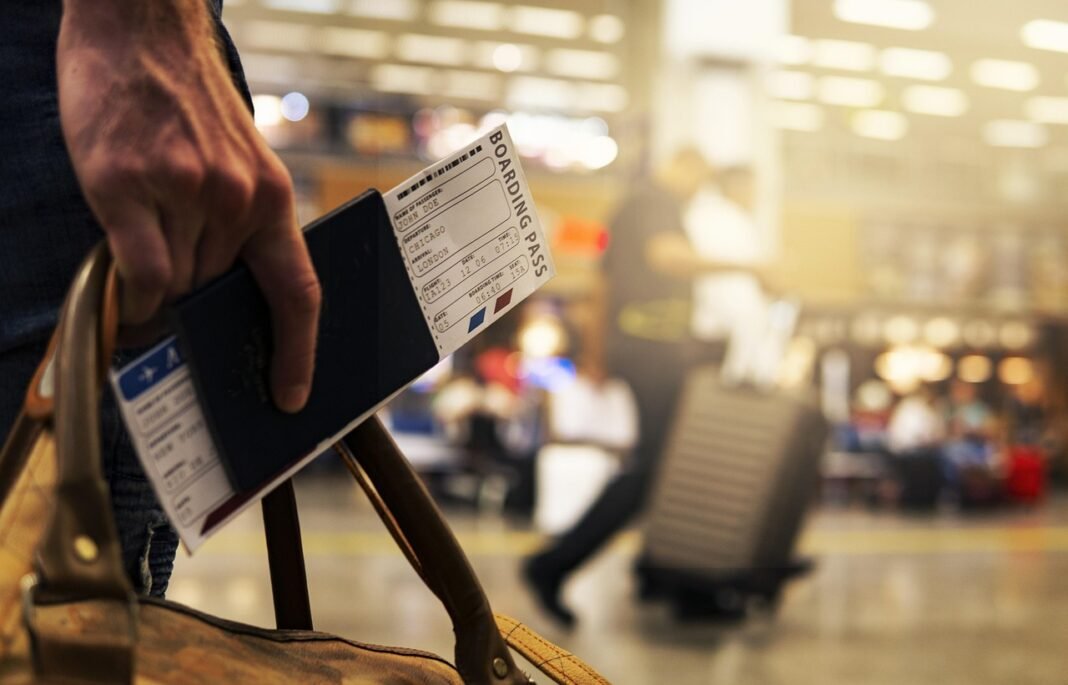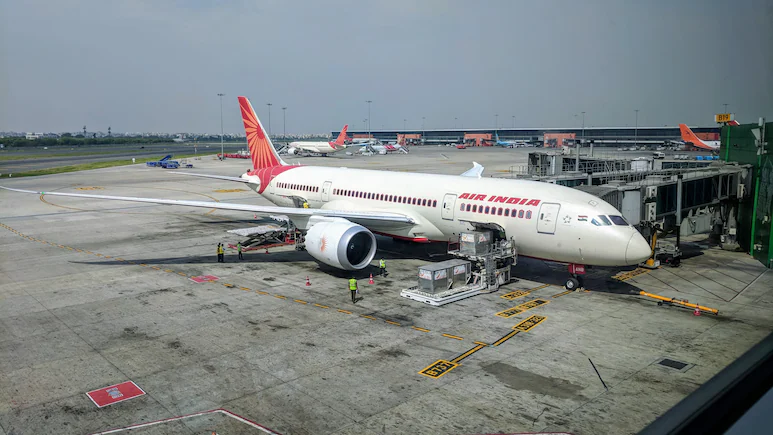Prime Minister Narendra Modi’s recent visit to Cyprus became more than just a diplomatic stop-it turned into a moment of cultural resonance and geopolitical signaling. From a symbolic welcome to strategic messaging aimed at Turkey, this trip embodied India’s modern foreign policy approach: quiet strength, cultural confidence, and sharp diplomacy.
Modi in Cyprus: Why symbolism and diplomacy are key to showcasing an India far removed from the average man’s world
Prime Minister Narendra Modi’s visit to Cyprus has made people set up and take notice for the symbolism more than what was discussed, or the outcome. Though the schedule appeared a predictable high-level encounter, it ended up being a strong statement of international alignment and message. In a place of entrenched geopolitical tensions, particularly with Turkey flexing its muscles, Modi’s presence in Nicosia was more than mere ceremonial handshakes.
This visit was a catalyst for a new era in the India-Cyprus relationship, laying a new emphasis on our economic partnership, cultural affinity and oneness in global multilateral forums. But beneath the surface, it can also be read as a message directed very much at Ankara.
A Warm Welcome, With a Cultural Slam
Cyprus – The images from Modi’s Cyprus stop were striking. Most talked about moments were when a Nicosia Municipal Council member touched the PM’s feet, which was picked up by the media. This was a traditional Indian gesture of respect – a gesture all but unknown in the Western political world, and deeply symbolic too. It encapsulated the reverberation of Indian culture across the seas and the particular warmth extended to Modi on his visit.
The council member, who is said to be fond of Indian culture and the Prime Minister’s leadership, described the action as spontaneous and from the heart. The impromptu move slapped into light the soft power attraction Modi wields even at the obscure corners of Europe, reports NDTV.
But for many observers, the moment transcended protocol. It was an organic reminder of not just India’s heightened influence, but also the emotional bonds it is now able to increasingly strike on the world stage.
Cyprus – India: A Relationship of Depth and Continuity
India – Cyprus Relations Under Relations with Cyprus have traditionally been friendly, and date back to 1960. Cyprus was one of the early voices of support for India’s position when it came to Kashmir at international forums, and New Delhi continues to support Cyprus on the Cyprus question, supporting a bi-zonal, bi-communal federation in accordance with the United Nations Security Council resolution.
During this visit the Prime Minister expressed his country’s support for sovereignty, stability and territorial integrity of the Republic of Cyprus. He also thanked Cyprus for its “continued support for India in multilateral institutions and fora, including the UN”.
The Indian community in Cyprus is small, yet has contributed a positive role in nurturing this dual relationship. Just like in other countries: the Indian community includes its own intellectuals and students, workers and entrepreneurs are well-integrated into Cypriot society.
Strategic Optics: A Signal to Turkey, if Subtle
If anything, the most politically laden aspect of Modi’s trip is its timing and its backstop. Cyprus has had a troubled relationship with Turkey ever since a 1974 Turkish invasion split the island. The Northern Cyprus area still is under the control of Turkish-backed forces and is only recognized by Ankara. The occupation is considered illegal by the rest of the world, including the European Union.
Modi’s engagement with Cyprus is being seen by analysts as a nuanced diplomatic pushback against Turkey’s apparent tilt towards Pakistan on issues such as Kashmir. Turkish President Recep Tayyip Erdoğan has consistently brought up Kashmir at the United Nations, with his comments often mirroring Pakistan’s stance and, in turn, drawing condemnation from Indian officials.
By choosing to visit Cyprus, India may be putting forth a counter-narrative – of standing with a European Union member state that has seen occupation and disputes over territories while also going on record against Turkey’s stance on Indian internal issues.
As per the ANI report, Modi’s visit to Nicosia is about India exerting soft power while signaling its geopolitical unhappiness – minus any overt provocation. It is a sign of a foreign policy growing up and when to speak through symbolism rather than words.
Economic Vision: A Showcase for India’s Global Ambitions
Modi didn’t just zero in on symbolism during the visit. He argued in favor of India’s burgeoning economic might. “India is on course to become the third-largest economy in the world,” he said during his public address, reiterating the country’s global trajectory.
He mentioned stable macroeconomic fundamentals in India, digital infrastructure revolution and massive start-up ecosystem as the reasons for this dynamism.
- Young population
- Culture of innovation
- Digital infrastructure revolution
These factors, according to Modi, position India as a major contributor to the global economic order. The comments sounded not just as an affirmation of the strength of the economy but also a call to Cypriots to invest in sectors such as:
- Technology
- Pharmaceuticals
- Green energy
Cyprus, which has a favourable tax regime and is strategically located, had the differential advantage of being a valuable partner in India’s efforts to tap into the European economic space.
A Historical Perspective: Non-Alignment and Beyond Revisited
India and Cyprus, being historically aligned with the Non-Aligned Movement recognition, have both supported resolution of international conflicts through peaceful dialogue. Modi’s visit rekindled those roots, with a modern twist.
The two nations have supported:
- Multilateral diplomacy
- Reform of the United Nations
- A rules-based international order
These themes were reflected in the joint meetings. Amidst global powers turning to aggressive posturing, the reaffirmation of multilateralism was a diplomatic option that asserted, rather than threatened, stability and dialogue.
Modi also expressed his gratitude to Cyprus for backing India’s permanent membership of the UN Security Council – an important aspect of India’s foreign policy priorities in recent years.
The Impact of Diasporas on Cultural Diplomacy
Much was also made of the cultural diplomacy side of the visit. Prime Minister attended Indian classical performances, yoga demos and interactions with the community.
Modi was greeted by traditional fanfare from the Indian diaspora in Cyprus, again underscoring the transnational nature of the diaspora as cultural ambassadors. While Indians increasingly travel for studies and jobs, such ties are also crucial to forge people-to-people linkage.
The Prime Minister recognised this and urged the diaspora to still serve as connectors to cultures, saying “every Indian abroad is a messenger of India’s old traditions and its new prospects.”
Why This Visit Matters Now
Even as the trip to Cyprus may not have been on the radars of foreign policy analysts, it is no less an event in India’s diplomatic profile.
- It was the sign of an old friendship amid a shifting world order.
- It sent a signal to countries such as Turkey about a calibrated, self-assured, regionally conscious India’s emerging foreign policy.
- It framed India sharpening as a rising global power with both hard power aspirations and soft power charm.
In many respects, this stop in Nicosia was less about what it said in the headlines, and much more about what it said beneath them – and in diplomacy, that is often where the real impact is felt.
Conclusion
Narendra Modi’s visit to Cyprus was a diplomatic dance done right that whispered rather than hollered the message. From a heartwarming instance of cultural homage by a Cypriot dignitary to a strong message on India’s economic rise and geopolitical clarity, the journey highlighted the layered approach of India’s foreign policy.
Amid an era dominated by open professions and boisterous diplomacy, India chose grace, alignment, and a noiseless expression of values and priorities. That visit, to Cyprus, suffused with tradition and warmth, was not without clear signals to friends and skeptics alike – namely, that India is ready to script the world’s narrative on its own terms, at once principled and powerful.
FAQs
What was the main purpose of Modi’s visit to Cyprus?
The visit focused on strengthening bilateral ties, showcasing cultural diplomacy, reinforcing multilateral support, and subtly signaling geopolitical messages, particularly to Turkey.
Why was the gesture of touching Modi’s feet significant?
It symbolized deep cultural respect and highlighted India’s soft power influence, making headlines as an unusual diplomatic moment in a European setting.
How does Cyprus support India in international forums?
Cyprus has backed India on issues like Kashmir and supports India’s permanent seat at the UN Security Council. India reciprocates with support on the Cyprus issue.
Did Modi discuss economic collaboration during the visit?
Yes, he emphasized India’s status as a rising global economy and invited Cyprus to invest in technology, pharma, and green energy sectors.
Is there a message to Turkey in Modi’s Cyprus visit?
While not explicitly stated, the timing and context of the visit suggest a diplomatic counter-narrative to Turkey’s alignment with Pakistan on Kashmir.
Reference
Prime Minister Narendra Modi’s visit to Cyprus sends a message to Turkey
Stay updated with all the latest news and insights – News Of US






